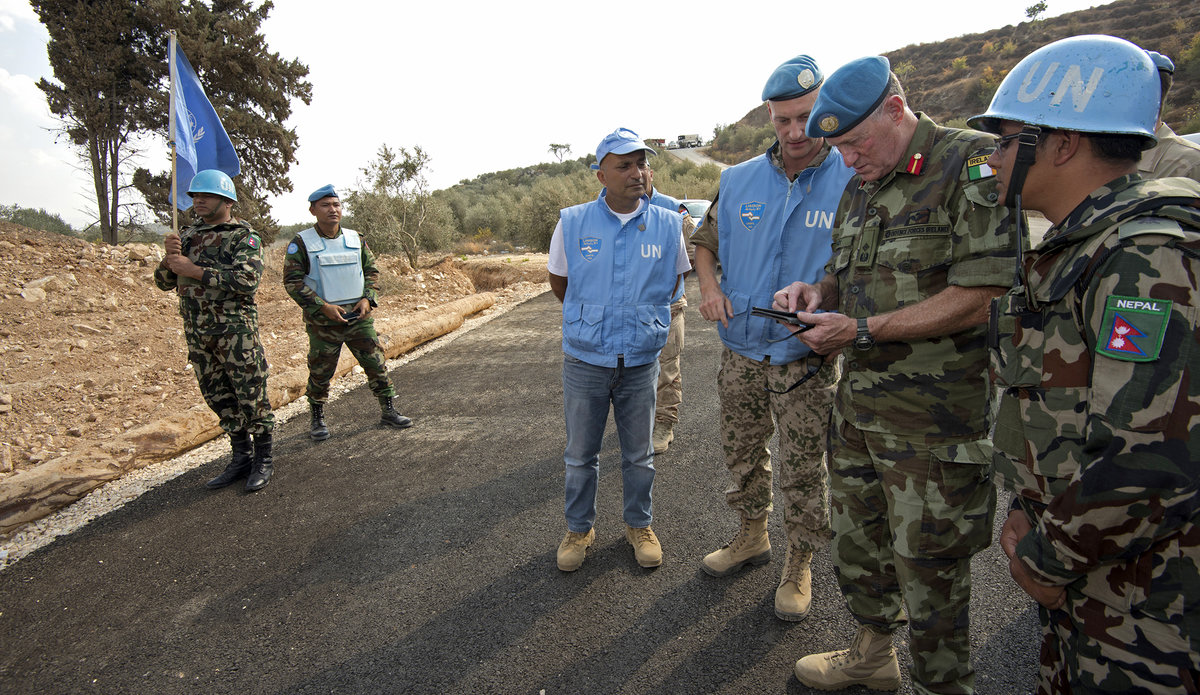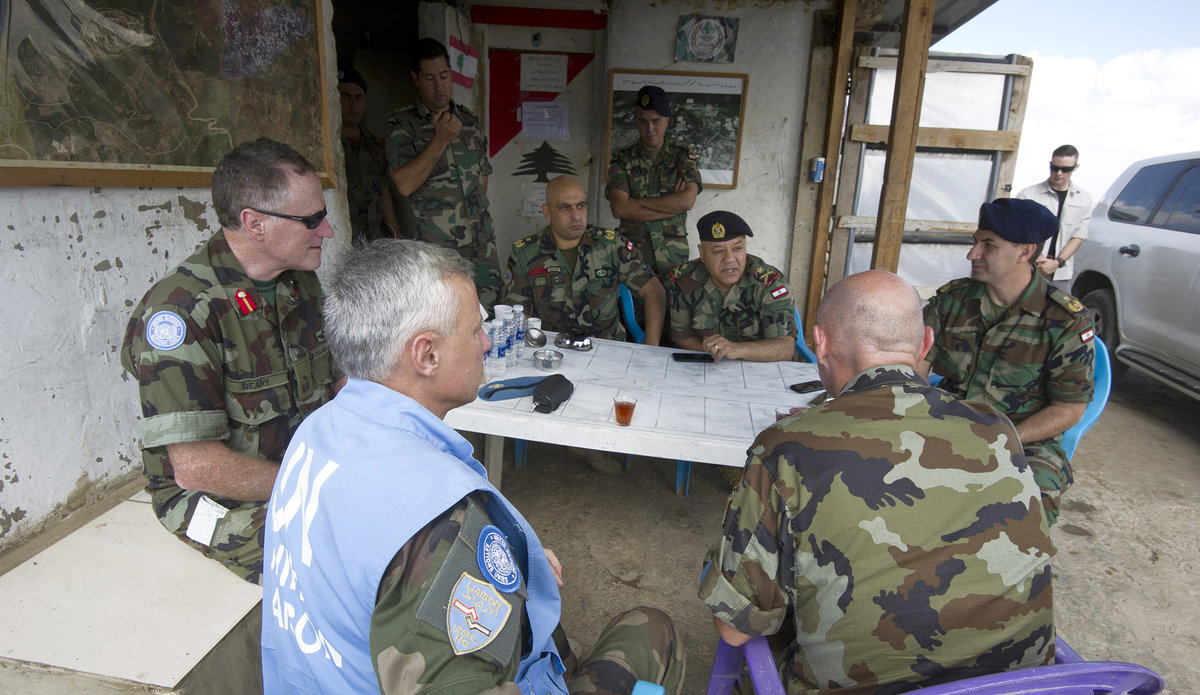UNIFIL liaison: A vital communication link
It's autumn in Lebanon and the Blida olive fields that span the Blue Line are being harvested by Lebanese families before the winter rains come. One of UNIFIL’s Liaison teams is there too. In their bright blue bibs and blue UN flag the three unarmed peacekeepers are easy to spot through the old trees. They are a familiar presence here; as they patrol on foot through the rows of old trees they exchange Arabic greetings with the small groups of olive pickers. In the field alongside is a large elevated blue metal barrel. It is one of the 268 Blue Line markers that make the Line of Withdrawal or Blue Line between Israel and Lebanon visible.
“Everyday we deploy six teams along the Blue Line. Four teams are on the Lebanese side and two teams are on the Israeli side,” says Colonel Philippe Sidos, UNIFIL Chief Liaison officer. “They go to specific areas because some areas are more or less contentious - it depends on the week, it depends on the month, it depends on the year.”
The peacekeepers who work in UNIFIL Liaison Branch act as the Mission's first responders. They are actively deployed to sensitive areas along the Blue Line. By being present on the scene they are able to stop Blue Line violations, prevent misunderstandings and de-escalate tension.
Communication is vital. Throughout the day the unit is in regular contact with the Lebanese Armed Forces (LAF) and the Israel Defense Forces (IDF). The Liaison Branch reports directly to UNIFIL's Head of Mission and Force Commander, and keep senior leadership aware of any potential issues.
Col. Sidos elaborates, “All along the Blue Line we have regular minor incidents that can degenerate into much bigger events. So we are here to establish contact between the parties, eventually to interfere between the parties as a shield.”
Senior Staff Liaison Officer Major Vesa Juntunen describes the makeup of the Liaison Branch teams: “The liaison teams consist of two liaison officers from different nations and one liaison assistant. We have 34 peacekeepers in our branch and they come from 18 different countries. The local language assistants are a key element in our teams.”
Each morning the patrol teams give a detailed report to the rest of their unit in the morning briefing. It often happens that a report sparks a conversation between the chief and the officers. “It is always an exchange of opinions,” says Col. Sidos. “This is the huge advantage of working with senior officers. Their experience allows them to understand perfectly the consequences of what they are doing because they have to take initiatives.”
After the briefing the unit splits up into teams, and head out in their vehicles. Col. Sidos watches as they leave their headquarters in Naqoura. “As a paramount part of the UNIFIL effort, the Liaison Branch faces challenges along the Blue Line every day without a sign of demoralization. On the contrary, what I have seen here is a group of peacekeepers who are an example of kindness, professionalism and comradeship – comrades always willing to help, to teach and to support. We are conscious about how vital our role on both sides of the Blue Line is. We want nothing less than a peaceful and secure future for everyone.”
Background to UNIFIL Liaison Branch:
On 11 December 2006, in a Tripartite meeting, a Liaison and Coordination Arrangement was agreed by UNIFIL, the Lebanese Armed Forces (LAF) and the Israel Defense Forces (IDF).
UNIFIL Liaison's main priorities are to ensure all official information between UNIFIL and the parties is administered, tracked, recorded and dealt with in UNIFIL headquarters in a timely manner.
They anticipate and monitor potential incidents that may arise along the Blue Line. Through diplomacy and negotiations they work to decrease tension and attempt to stabilize such situations through mediation ensuring the Lebanese and Israeli population as well as UNIFIL personnel are not endangered. They investigate and confirm alleged Blue Line violations and monitor and report from both sides of the Blue Line.
--------------------------------------------------------------------------------------------------
Article: Aoibheann O'Sullivan
Video camera: Mohamad Hamze
Video Editor: Mohamad Hamze, Aoibheann O'Sullivan
Motion Graphics: Zeina Ezzeddine
Photo: Pascual Gorriz
--------------------------------------------------------------------------------------------------
 UN
UN United Nations Peacekeeping
United Nations Peacekeeping










